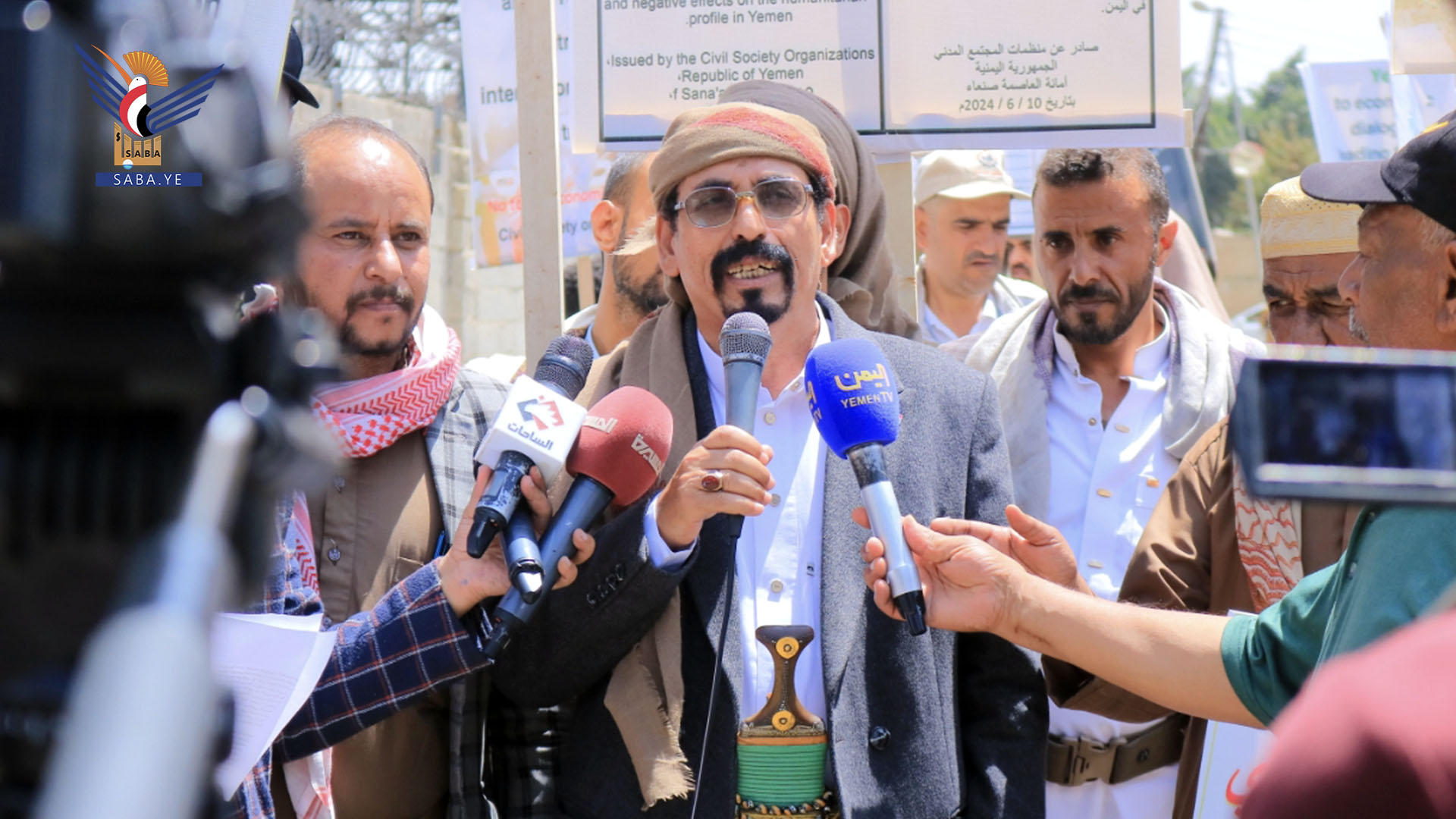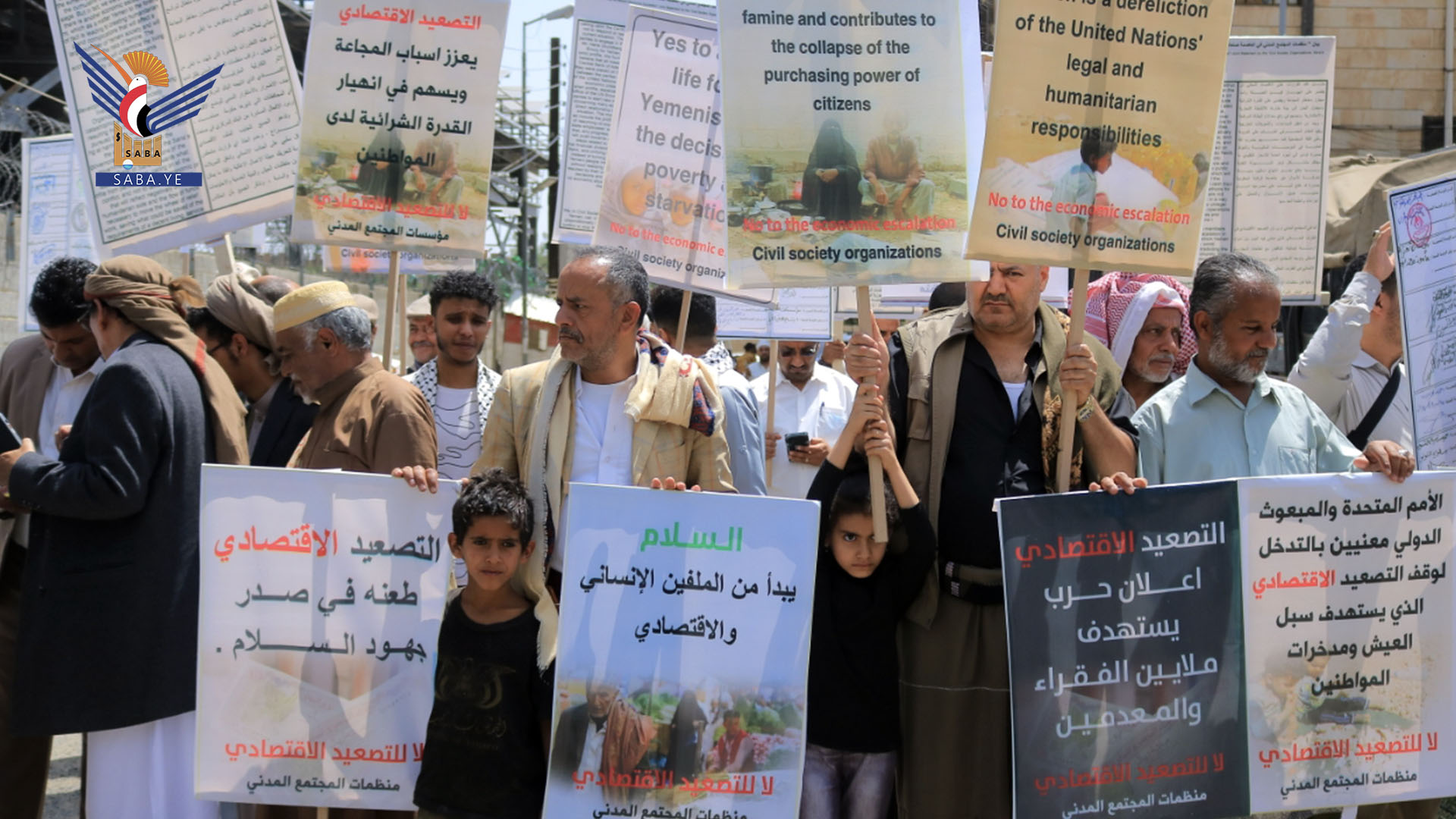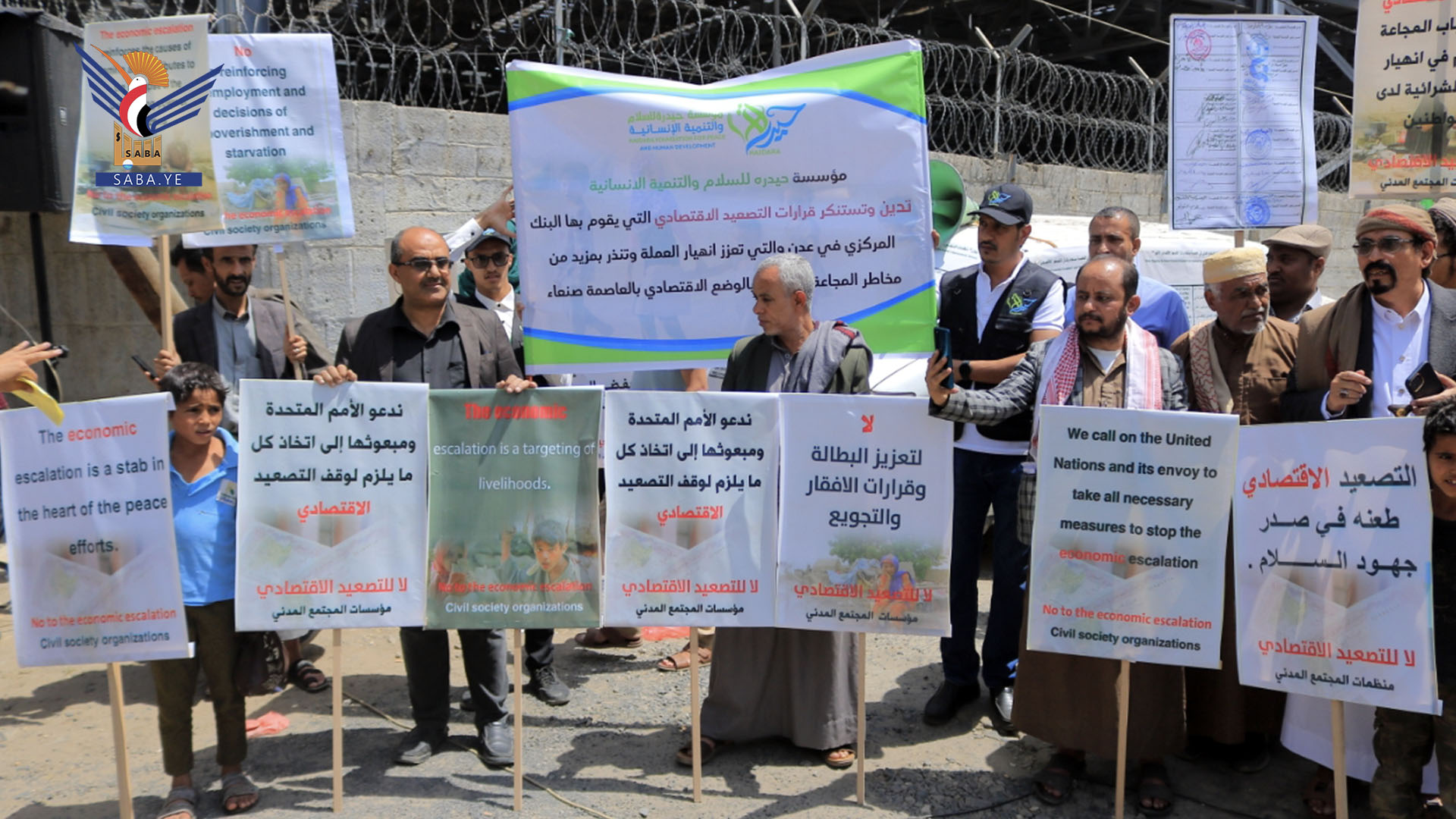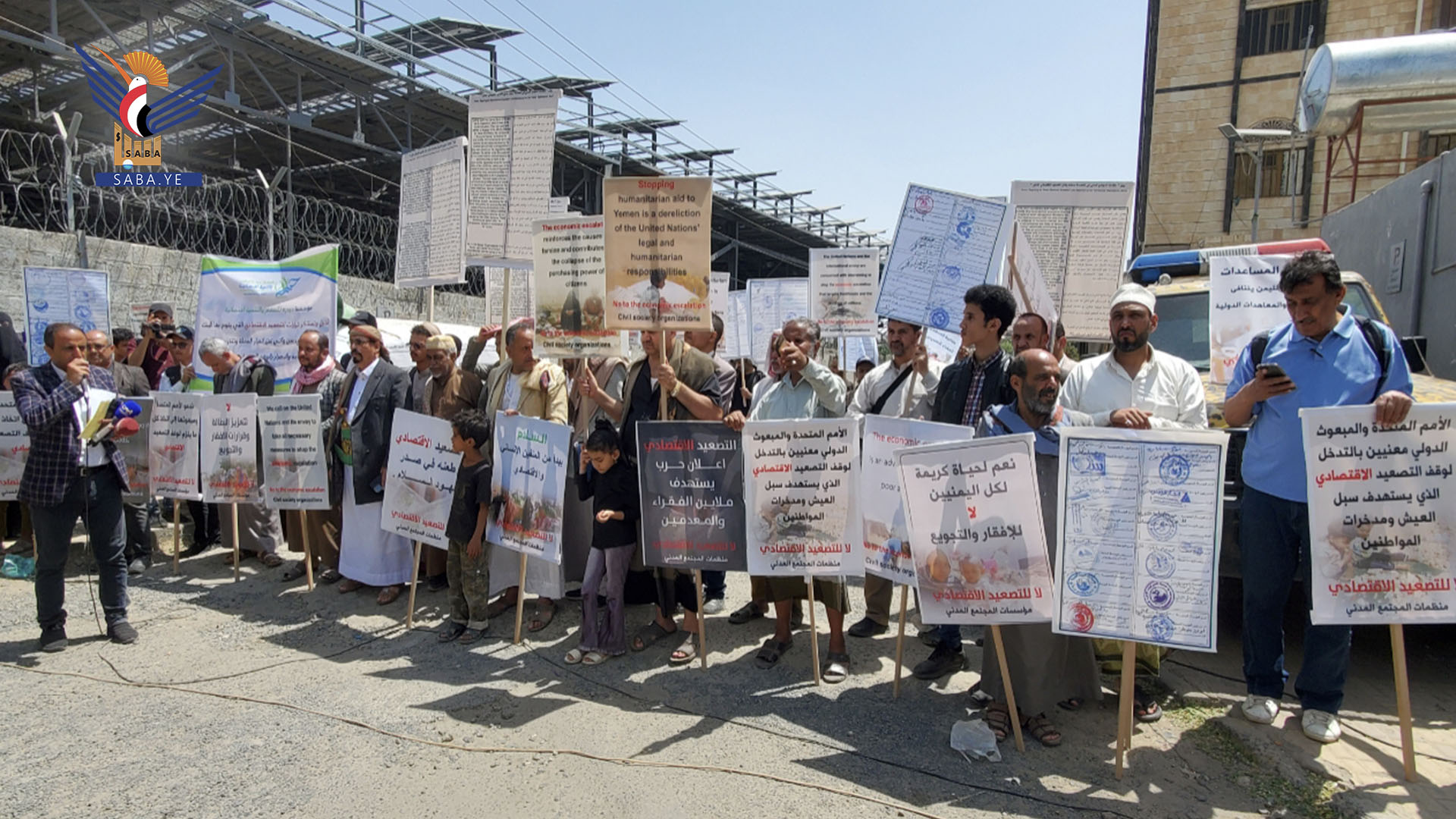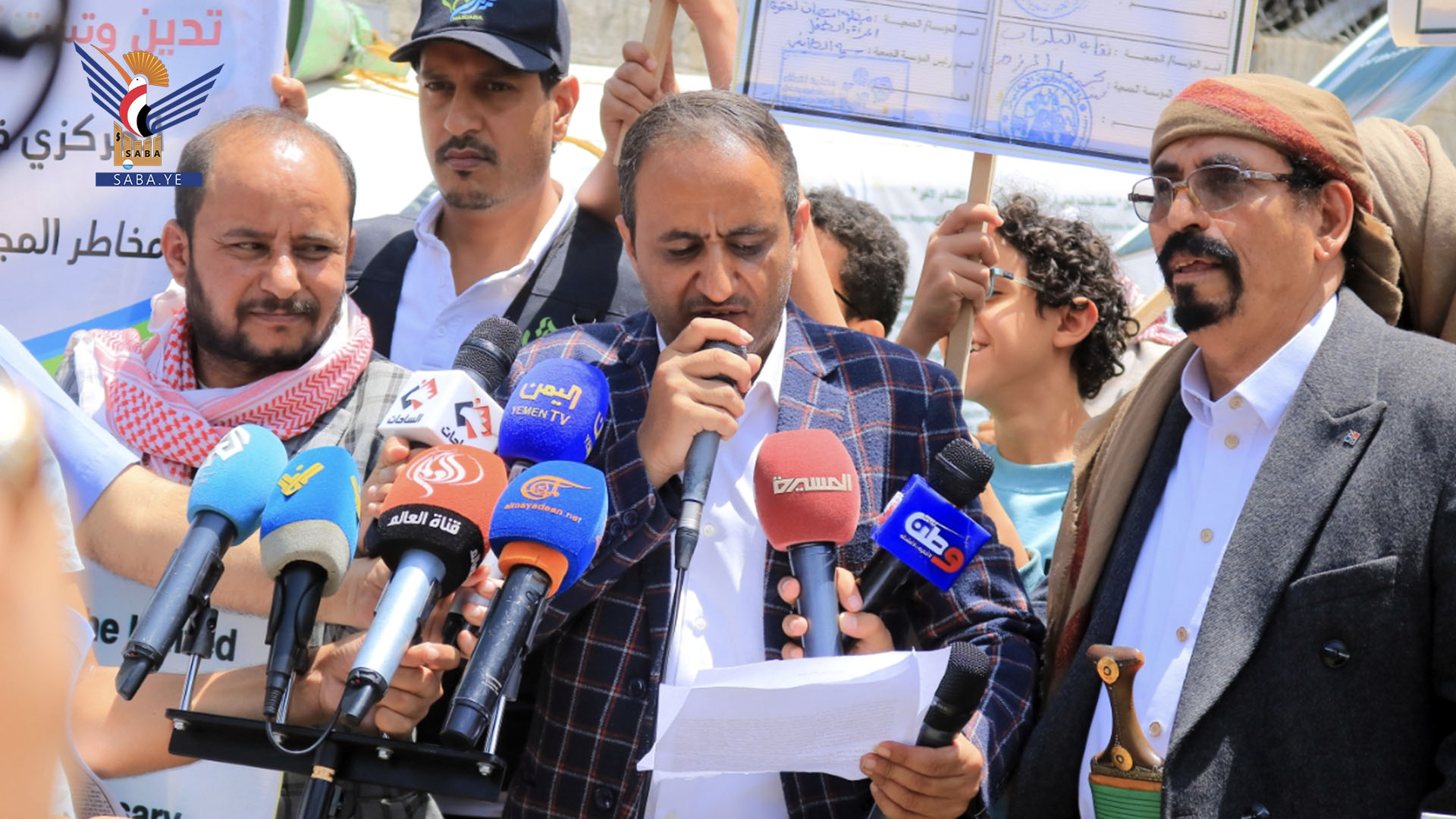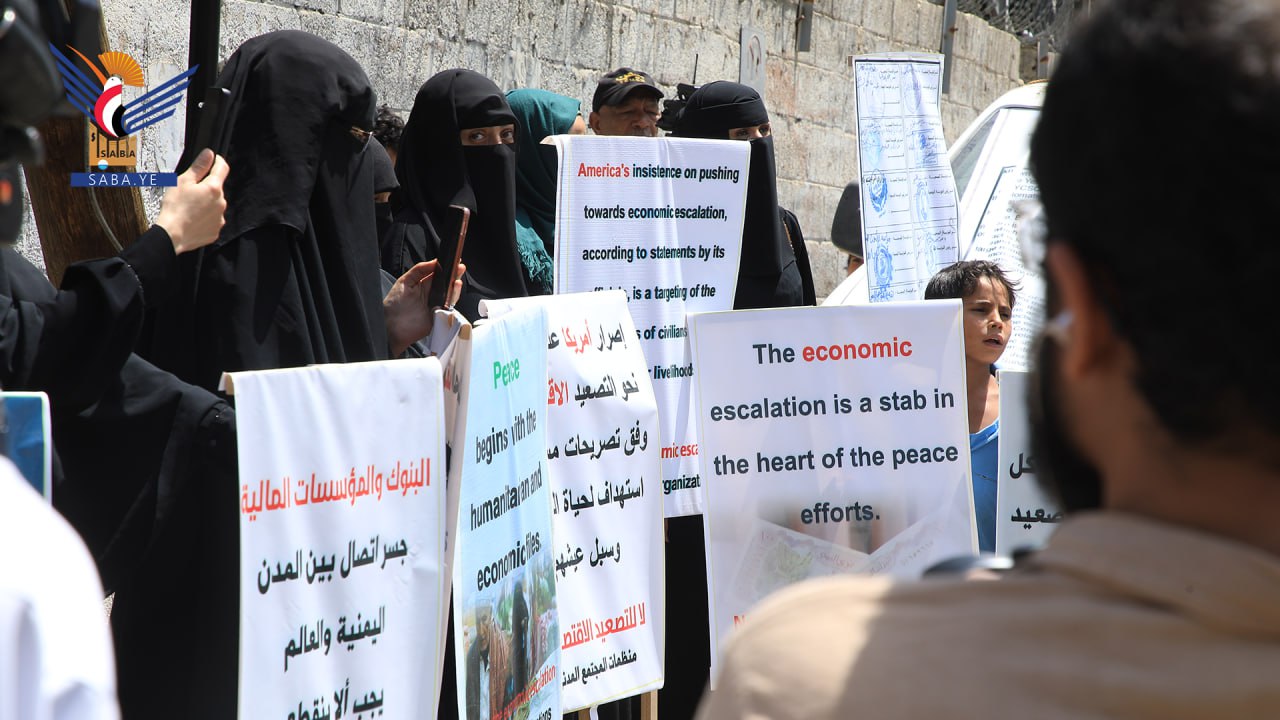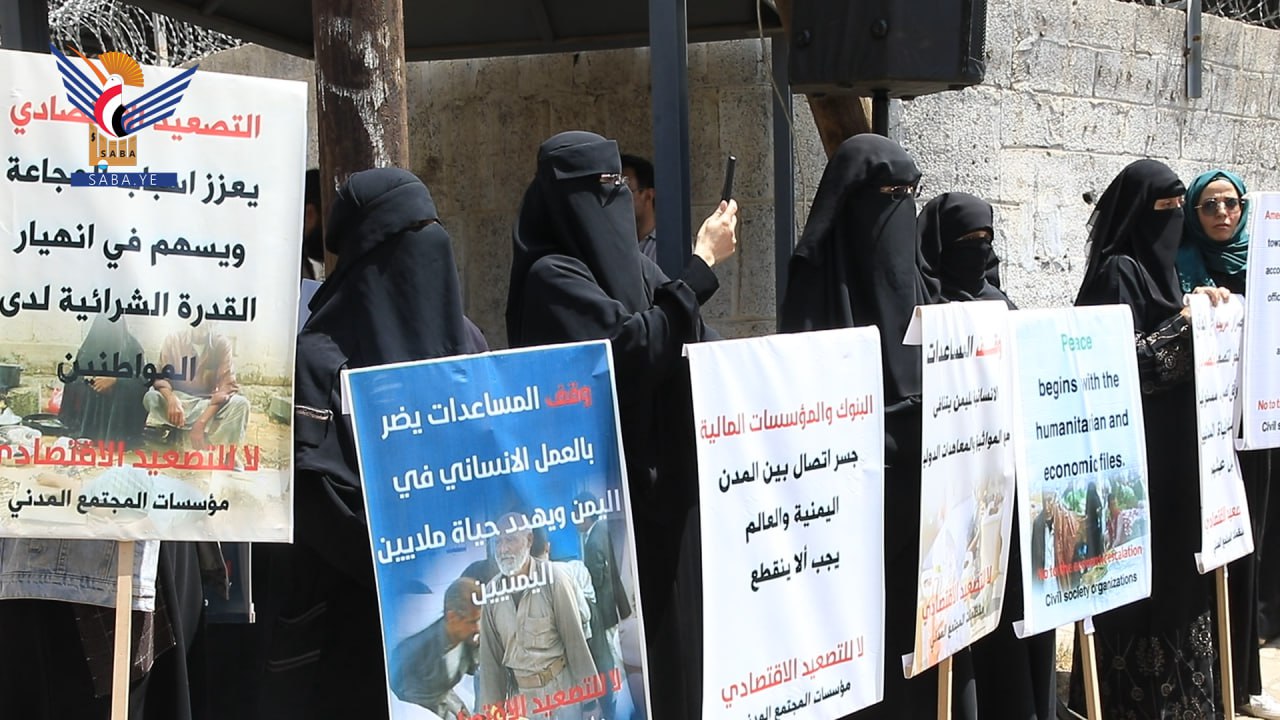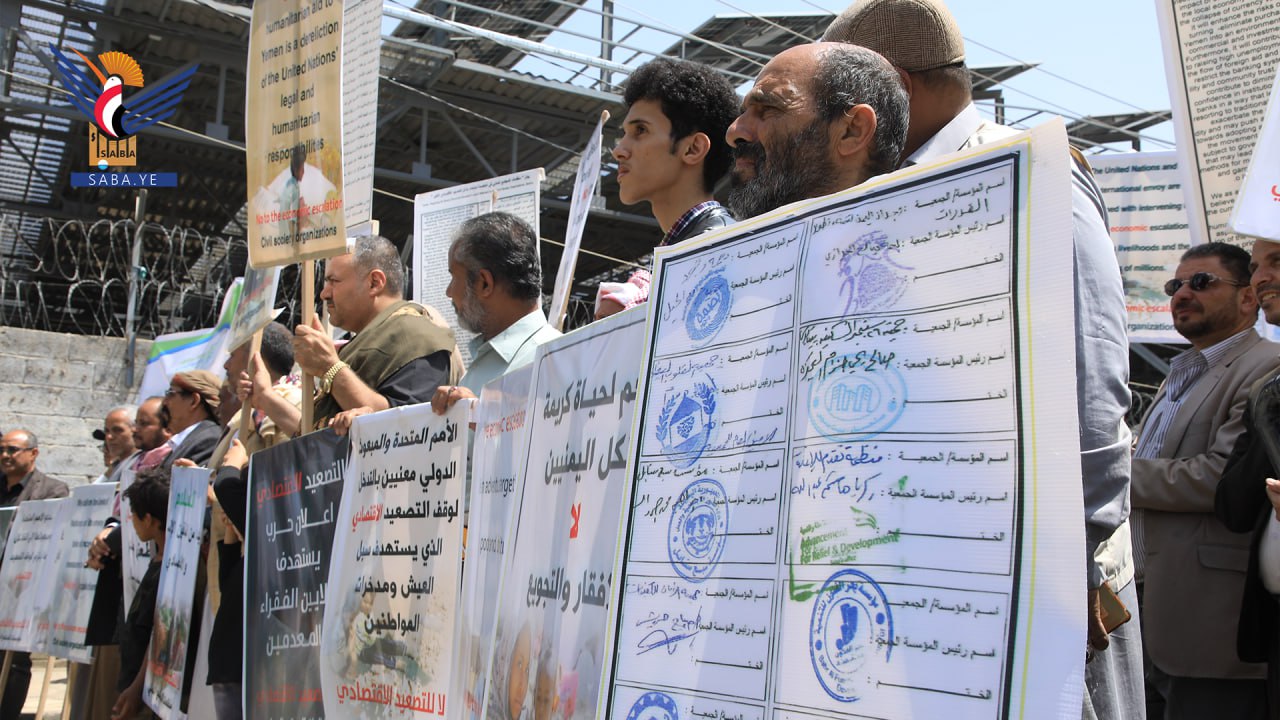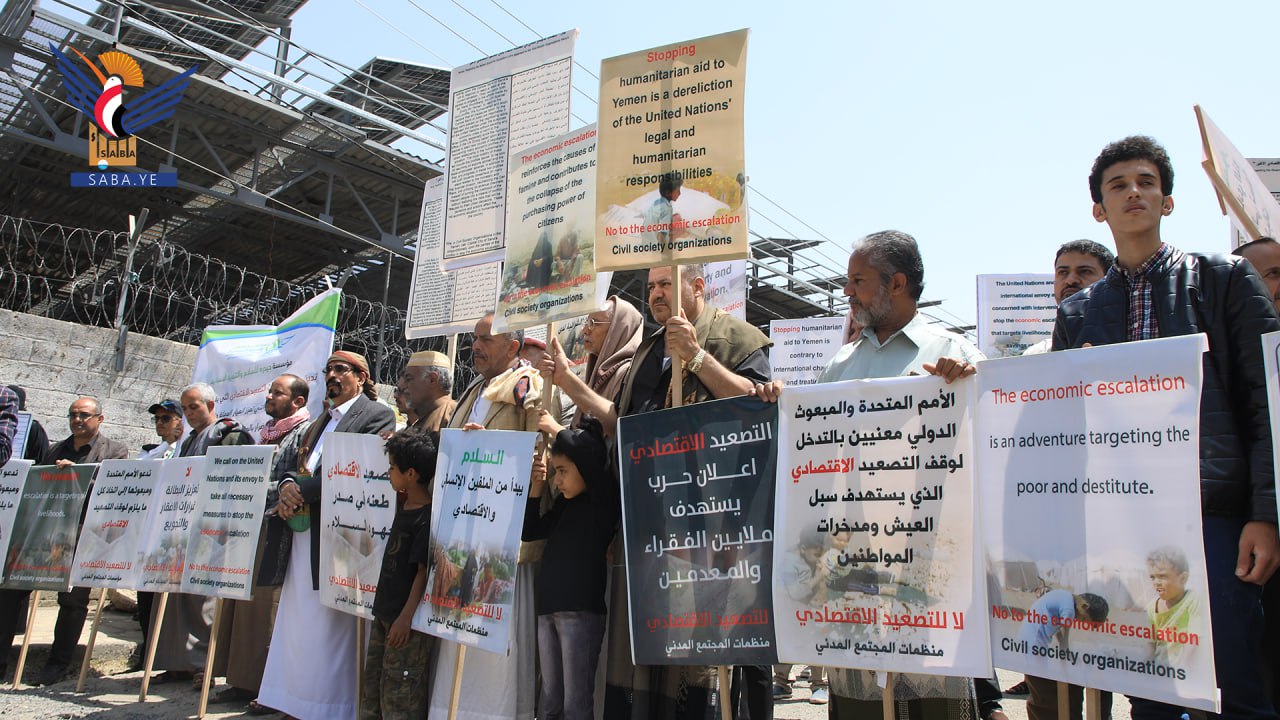
SANA'A June 10. 2024 (Saba) - The Bureau of Social Affairs and Labor, alongside civil society organizations, on Monday orchestrated a protest in front of the United Nations building in the capital Sana'a, condemning the economic escalation gripping Yemen.
Gathering at the demonstration were leaders and members of various associations, institutions, and civil organizations. They collectively decried the economic measures implemented by Aden bank, which pose a dire threat to the already fragile livelihoods of Yemeni citizens.
Participants emphasized that the ramifications of these decisions on the local economy extend beyond currency devaluation. They foresee heightened risks of famine, a decline in purchasing power, and potential disruption to the relative stability of the economic situation not only in the capital but across provinces.
During the protest, Dirham Abu al-Rejal, Chairman of the Supreme Council of Civil Society Organizations, vehemently rejected policies leading to starvation and the undermining of the national currency.
He underscored local organizations' opposition to any attempts to replace the recognized and guaranteed currency with an illegitimate alternative.
Abu al-Rejal urged the international community, the Security Council, and the global community to fulfill their responsibilities in halting methods that threaten to starve the Yemeni people and dismantle their economy.
A statement outlining organizations' concerns regarding the repercussions of these decisions on income sources, fund movement, international aid, unemployment, and hunger in Yemen was delivered to the UN Office by participants.
The statement condemned the resurgence of economic escalation, warning of its catastrophic humanitarian consequences. It emphasized the risk of exacerbating the ongoing crisis, amplifying famine, economic depression, and jeopardizing the stability of millions of Yemenis.
Civil society organizations stressed their vigilance regarding the disastrous effects of the economic measures adopted by the central bank in Aden. They urged stakeholders to prioritize humanitarian needs over political agendas.
In light of Yemen's dire humanitarian crisis, civil society organizations called for an immediate cessation of economic escalation without preconditions, emphasizing the risks posed to millions of Yemenis.
The UN echoed the urgency of the situation, urging the international community to intervene and halt the irresponsible economic measures targeting remittances, which serve as a vital lifeline for 30 percent of Yemeni families.
Community organizations cautioned against any disruptions to cash assistance from international organizations, emphasizing the need to hold accountable any party imposing restrictions on fund movements to achieve political goals at the expense of Yemeni interests.
The collective call to halt escalation reflects the humanitarian and moral duty of civil society organizations to shield Yemeni society from the devastating effects of measures that could plunge millions into famine.
H.H
Gathering at the demonstration were leaders and members of various associations, institutions, and civil organizations. They collectively decried the economic measures implemented by Aden bank, which pose a dire threat to the already fragile livelihoods of Yemeni citizens.
Participants emphasized that the ramifications of these decisions on the local economy extend beyond currency devaluation. They foresee heightened risks of famine, a decline in purchasing power, and potential disruption to the relative stability of the economic situation not only in the capital but across provinces.
During the protest, Dirham Abu al-Rejal, Chairman of the Supreme Council of Civil Society Organizations, vehemently rejected policies leading to starvation and the undermining of the national currency.
He underscored local organizations' opposition to any attempts to replace the recognized and guaranteed currency with an illegitimate alternative.
Abu al-Rejal urged the international community, the Security Council, and the global community to fulfill their responsibilities in halting methods that threaten to starve the Yemeni people and dismantle their economy.
A statement outlining organizations' concerns regarding the repercussions of these decisions on income sources, fund movement, international aid, unemployment, and hunger in Yemen was delivered to the UN Office by participants.
The statement condemned the resurgence of economic escalation, warning of its catastrophic humanitarian consequences. It emphasized the risk of exacerbating the ongoing crisis, amplifying famine, economic depression, and jeopardizing the stability of millions of Yemenis.
Civil society organizations stressed their vigilance regarding the disastrous effects of the economic measures adopted by the central bank in Aden. They urged stakeholders to prioritize humanitarian needs over political agendas.
In light of Yemen's dire humanitarian crisis, civil society organizations called for an immediate cessation of economic escalation without preconditions, emphasizing the risks posed to millions of Yemenis.
The UN echoed the urgency of the situation, urging the international community to intervene and halt the irresponsible economic measures targeting remittances, which serve as a vital lifeline for 30 percent of Yemeni families.
Community organizations cautioned against any disruptions to cash assistance from international organizations, emphasizing the need to hold accountable any party imposing restrictions on fund movements to achieve political goals at the expense of Yemeni interests.
The collective call to halt escalation reflects the humanitarian and moral duty of civil society organizations to shield Yemeni society from the devastating effects of measures that could plunge millions into famine.
H.H
resource : Saba
